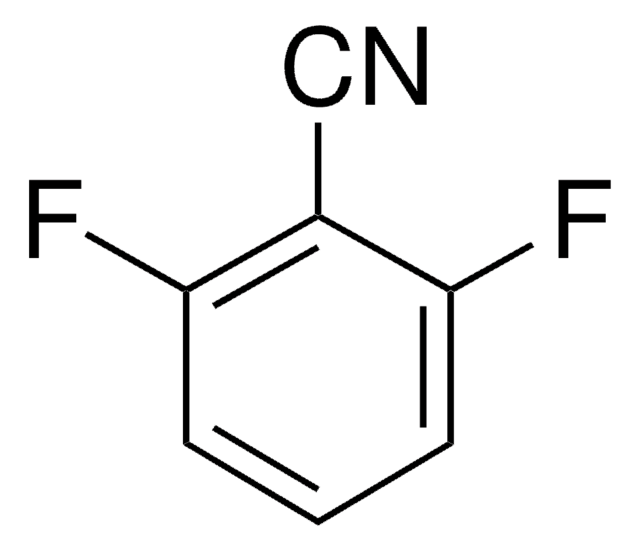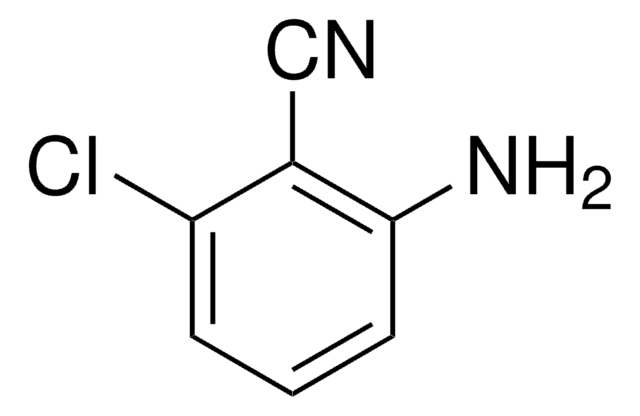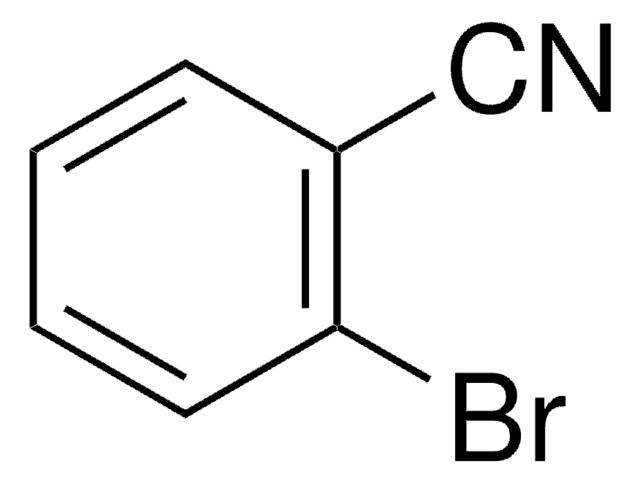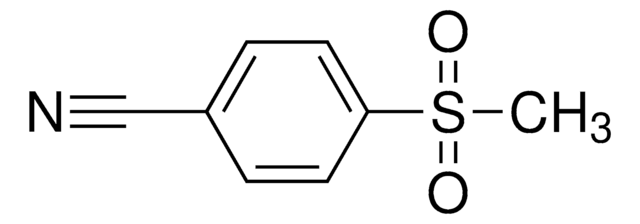429856
2-Amino-6-fluorobenzonitrile
99%
Synonym(s):
6-Fluoroanthranilonitrile
About This Item
Recommended Products
Assay
99%
mp
125-128 °C (lit.)
storage temp.
2-8°C
SMILES string
Nc1cccc(F)c1C#N
InChI
1S/C7H5FN2/c8-6-2-1-3-7(10)5(6)4-9/h1-3H,10H2
InChI key
IQUNZGOZUJITBJ-UHFFFAOYSA-N
Looking for similar products? Visit Product Comparison Guide
General description
Application
It may be used for the synthesis bis(4-oxoquinazolin-2-yl)pyridine and fluoro-containing quinazolin-4(1H)-ones. It may be employed for the synthesis of the following novel huprines:
- 12-amino-3-chloro-6,7,10,11-tetrahydro-9-isopropyl-7,11-methanocycloocta[b]quinoline hydrochloride
- 9-allyl-12-amino-3-chloro-6,7,10,11-tetrahydro-7,11-methanocycloocta[b]quinoline hydrochloride
- 12-amino-1-fluoro-6,7,10,11-tetrahydro-9-isopropyl-7,11-methanocycloocta[b]quinoline hydrochloride
- 9-allyl-12-amino-1-fluoro-6,7,10,11-tetrahydro-7,11-methanocycloocta[b]quinoline hydrochloride
Signal Word
Warning
Hazard Statements
Precautionary Statements
Hazard Classifications
Eye Irrit. 2
Storage Class Code
11 - Combustible Solids
WGK
WGK 2
Flash Point(F)
Not applicable
Flash Point(C)
Not applicable
Personal Protective Equipment
Certificates of Analysis (COA)
Search for Certificates of Analysis (COA) by entering the products Lot/Batch Number. Lot and Batch Numbers can be found on a product’s label following the words ‘Lot’ or ‘Batch’.
Already Own This Product?
Find documentation for the products that you have recently purchased in the Document Library.
Articles
Cancer research innovations address the complexity of the disease, providing advanced technologies for varied applications.
Biofiles reviews innovative technologies for cancer research, reflecting the complexity of the disease.
Our team of scientists has experience in all areas of research including Life Science, Material Science, Chemical Synthesis, Chromatography, Analytical and many others.
Contact Technical Service









